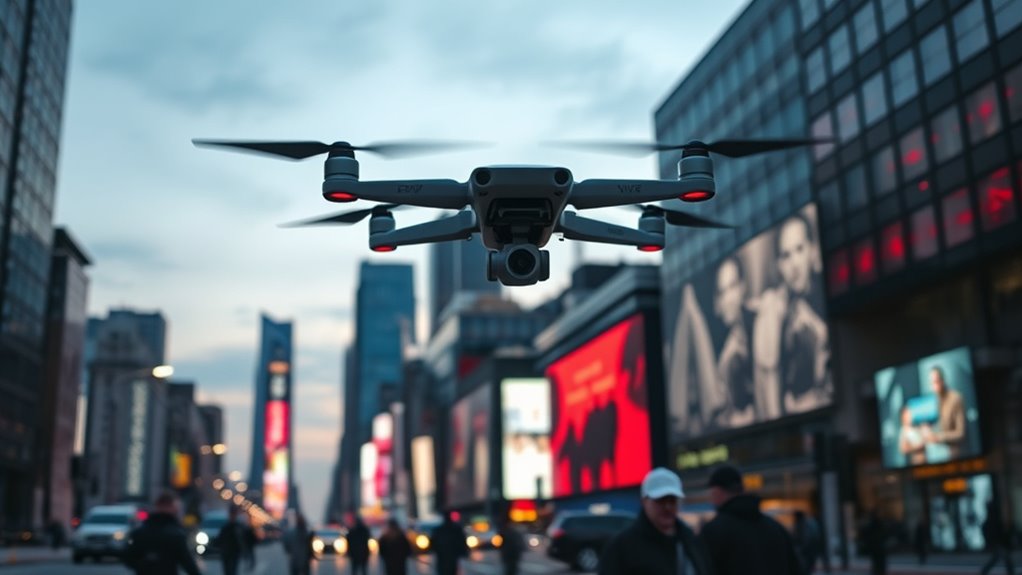Chinese surveillance tools are increasingly integrated into U.S. smart cities, raising alarms for the NSA regarding national security and privacy risks. These AI-powered technologies enable real-time monitoring and data collection, which could compromise your personal information. There's growing concern about sharing this data with the Chinese government, and vulnerabilities in these systems could endanger citizens. As these developments unfold, it's crucial to stay informed about the implications for your rights and security. More insights await you ahead.

As the integration of Chinese surveillance tools into U.S. smart cities accelerates, concerns about privacy and national security loom larger than ever. You mightn't realize it, but these advanced technologies, powered by artificial intelligence, are quietly monitoring vast amounts of data in real-time. The use of AI in surveillance raises significant privacy concerns, as these tools can track everything from traffic patterns to social media posts, including any anti-Chinese sentiments.
China isn't just developing these technologies for its own use; it's actively promoting its smart city solutions globally, including here in the U.S., often through initiatives like the Belt and Road. This global reach means that smart city technologies from China are becoming integrated into some U.S. cities, despite serious security risks. You may wonder how this affects your safety and privacy. The reality is that the vulnerabilities posed by these products can lead to potential data sharing with the Chinese government, creating a situation where your personal information could be at risk.
You might find it alarming that many of these AI-powered surveillance tools are built on open-sourced technologies, such as Meta's Llama. These tools are designed for real-time monitoring and data analysis, enabling a level of surveillance that can track social media posts critical of China. The implications are profound, as these capabilities contribute to a broader strategy of information control in China's global surveillance strategies.
With the rapid integration of Chinese technologies, U.S. cities face a challenging balancing act between leveraging the advantages of smart city innovations and safeguarding citizens' privacy. Unfortunately, there's a lack of standardization in U.S. smart city policies, making them more vulnerable to compromised technologies. You may ask yourself what steps are being taken to address these vulnerabilities.
The U.S. government is aware of the risks and has begun implementing security measures to protect information and communication technology systems. There's an increasing push for alternative smart city models that prioritize privacy and security over merely adopting the latest technologies.
As you navigate this complex landscape, it's essential to stay informed about how these surveillance tools may impact your life. The ongoing discussions about privacy, security, and the implications of integrating foreign technologies into U.S. infrastructure are crucial for ensuring that your rights are protected in this evolving digital age.
Conclusion
In conclusion, the NSA's warning about the Chinese surveillance tool serves as a wake-up call for U.S. smart cities. Just like a silent predator lurking in the shadows, this technology poses a significant threat to your privacy and security. It's crucial to stay informed and proactive, ensuring that your city's infrastructure isn't compromised. As you navigate this digital landscape, remember that vigilance is key to safeguarding your community from external intrusions.









